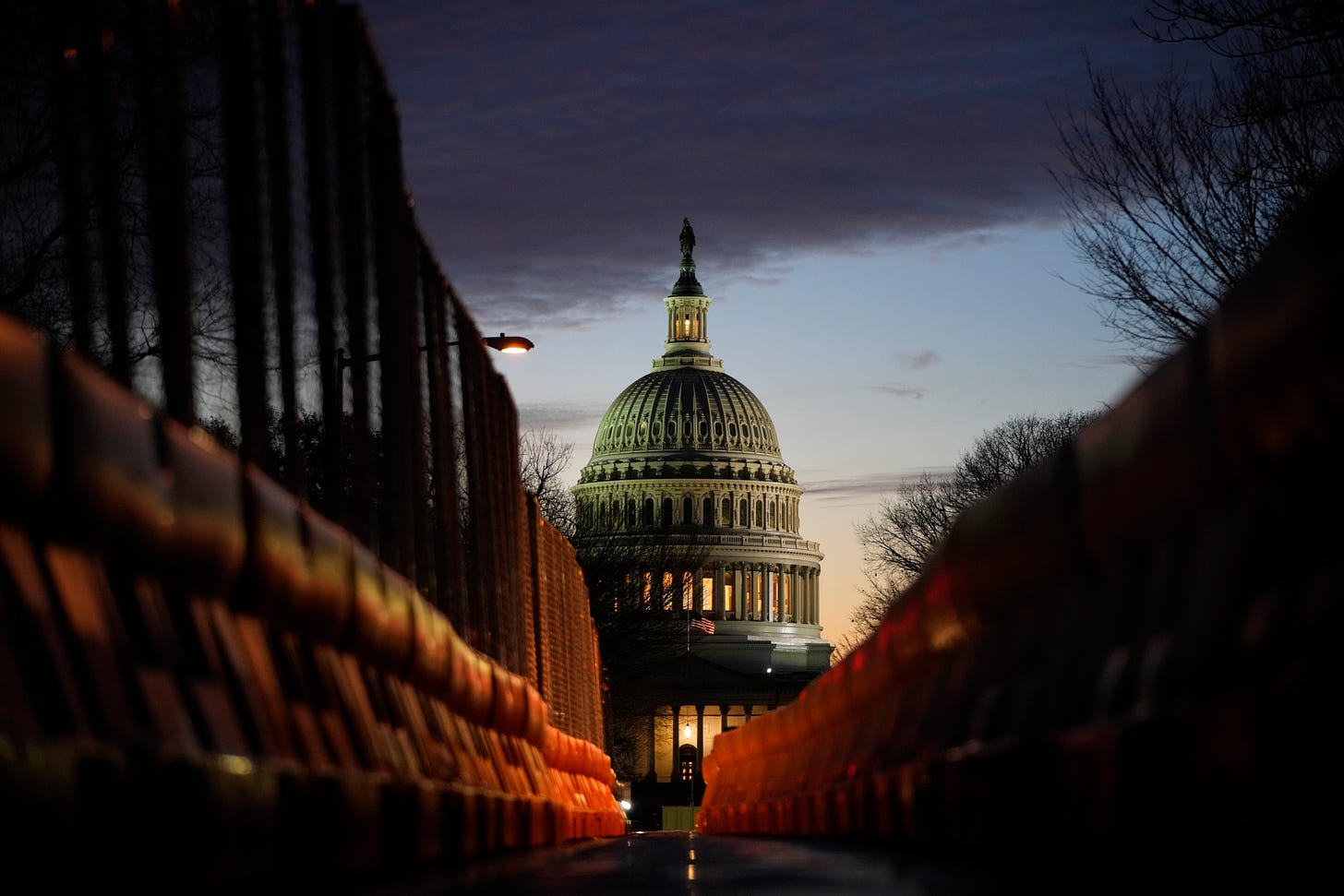The Cataclysmic Post-Election Scenario No One’s Bracing For
Plus: A senator’s honest reversal on term limits.

At the start of the 118th Congress in January 2023, I sat in the press gallery of the House chamber and watched Republicans fail to elect a speaker, as Kevin McCarthy didn’t have the votes. What is traditionally accomplished in an afternoon turned into 15 rounds of voting over several days. Eventually, after midnight on January 7, McCarthy secured enough votes and picked up the gavel as if he had finally become worthy of lifting Mjolnir. “My father always told me, it’s not how you start, it’s how you finish,” he said to his Republican colleagues after the vote.
While McCarthy’s time as Speaker would end in even more humiliating fashion, it got me thinking: What happens if something like this occurs at the start of the 119th Congress in January 2025?
There are multiple scenarios for what the government looks like after the election. The top three are the following:
A Republican or Democratic trifecta, in which one party controls the House, Senate, and White House.
A Democratic House of Representatives with a Trump presidency, which would likely include a GOP-led Senate.
Kamala Harris being elected president with that GOP-led Senate but also a Republican-controlled House.
The last one is the most interesting, because it is entirely plausible and perhaps the most constitutionally precarious scenario. In the event this happens, current House Speaker Mike Johnson would have some extremely difficult choices ahead of him if he wanted to maintain his speakership. But the key one is this: will he have to make promises around not certifying Harris’s win in order to get the support of Trumpists in his caucus to retain his gavel? As former top Republican aide Brendan Buck put it on his podcast recently:
Just a couple days after electing a new speaker, they need to certify the results of the election. What do you think Mike Johnson is, like, doing or saying at that point to try to keep his job? . . .
Is he, like, just going to crazy lengths to get the votes to stay there? Or are Republicans just so angry that they throw out Johnson? You know, even if he runs again, not electing a speaker, all that does is, like, you can’t certify an election if you don’t have a House seated yet.
Before the House can do anything—before it can even form—lawmakers have to elect a speaker and adopt a rules package (in that order). This typically occurs on January 3, the day the new Congress is sworn in, giving ample time before the counting of the Electoral College votes on January 6. But if the House is frozen like it was for several days at the start of the 118th Congress—well, no one knows for sure what would happen.




